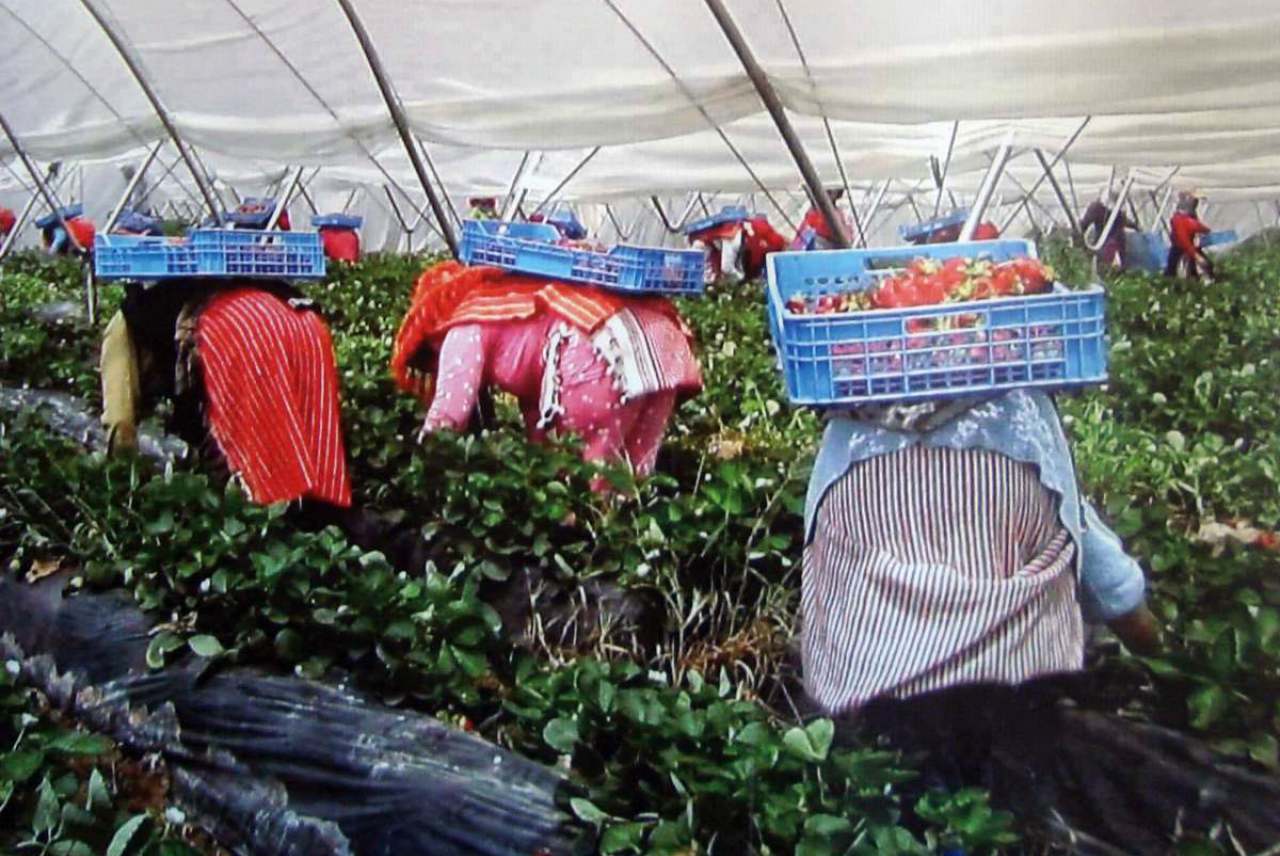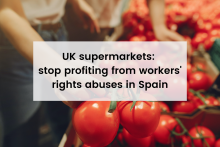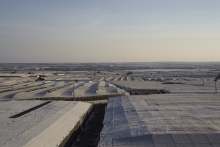Over 7,000 Moroccan women hired to pick fruits for companies that supply British supermarkets were left stranded in Huelva, Southern Spain, with no income for over a month after their fruit picking contracts ended.
On 18 July the first ferry departed transporting 1,200 seasonal workers from Huelva to Tangier, with a second departing on 20 July. According to the Spanish press Ferries will continue to make the journey every 48 hours until all Moroccan workers are repatriated.
All workers embarking on the repatriation ferries are required to have a Covid-19 PCR test before travelling to Morocco.
Stranded in Spain during the pandemic
Morocco suspended all international air, maritime and land travel in mid-March. Info Migrants suggests that the total figure of Moroccan workers stranded in Spain due to the border closure was over 22,000.
After fierce criticism, Morocco began repatriation operations in May, resulting in over 4,000 Moroccans returning from 17 different countries. The repatriations started in the aftermath of a serious incident: a Moroccan domestic worker in the Spanish city of Melilla lost her job and became homeless. Unable to return to Morocco, the Spanish Civil Guard took her to a homeless centre, where she was found dead shortly after from an unknown cause.
Moroccan Women Working in Spain
For Moroccan women with families to support, the soft fruit harvest can be an opportunity to earn four times as much as they would at home. But this year workers couldn’t return to Morocco when their contracts ended because the country closed its borders in mid-March.
Many women whose contracts ended in mid-May or June faced two options: spend earnings on subsistence in Spain and return to Morocco empty-handed, or send earnings back to their families and try to survive in Spain without money for an unknown length of time.
Few Spanish citizens choose to work the gruelling harvest. Ana Pinto is one of a small number of Spanish workers. She is spokesperson for Jornaleras de Huelva en Lucha, a collective fighting for the rights of women working in the fields and warehouses in Huelva.
Pinto told us what it’s been like for the soft fruit pickers since the virus outbreak began – including cases of businesses concealing coronavirus outbreaks among workers.
“It’s like living in hell”
Pinto says “The women are in shared accommodation provided by the farms. It’s not built to withstand these temperatures. It’s like living in hell because it’s so hot. Some women don’t have drinking water – they have to walk kilometres to buy it.”
“On one farm, the water and lights were cut off the day the women stopped working. Now they’ve been moved to another farm - but one that doesn’t have drinking water. It’s a coincidence that the generator broke right when the women stopped working. One woman went three months without insulin. She was diabetic and the organisation Mujeres 24 Horas had to coordinate for her to get it.
Another woman fell, and when she went to the doctors couldn’t get much help because she didn’t have health cover, and had sent all the money she had to her family. No government has organised any help for these women. For months they have been contributing and paying taxes here. They should have a right to some type of subsidy at least, given the circumstances.”
Working conditions pre-lockdown
We have written about the inhuman conditions for strawberry pickers in Huelva before.
Often employed on temporary ‘contracts in origin’, the workers are promised the legal wage, medical treatment and free accommodation. But these conditions often go unmet.
Pinto says that barely any soft-fruit picking companies in Huelva pay a wage that guarantees workers their basic rights.
“Businesses are facing problems with market pressure and intermediaries, and in the end it’s the workers in the field who pay the price.”
“The big companies in Huelva are all exploiters. Many treat us as if we’re animals or their slaves. They don’t pay the legal rates for overtime. Many make you sign and agree to abusive rules before you start. One prohibited workers from speaking to one another.
Some won’t let you put a bottle of water underneath the trolley where you put the fruit. There are people who don’t go to the toilet all day because they don’t want it to look like they’re not working fast enough.”
Supermarkets failing to take responsibility
British supermarkets have not acknowledged responsibility for the workers who were stranded in Spain, despite these workers likely being part of UK supermarket supply chains.
Supermarkets have also failed to call for greater transparency from suppliers in the region - some of which have reportedly deliberately concealed potential outbreaks of coronavirus among workers.
We call on British supermarkets to become more transparent by acknowledging the workers in supply chains in Southern Spain, and ensuring that companies prioritise the health and wellbeing of these workers.







